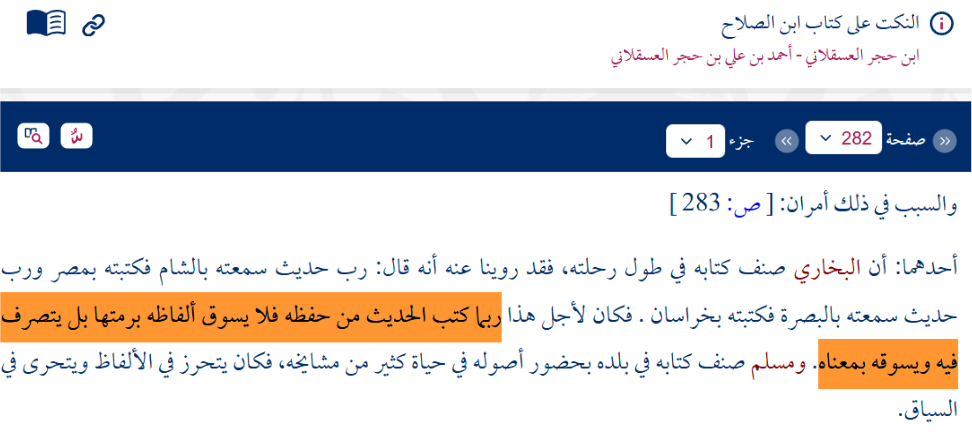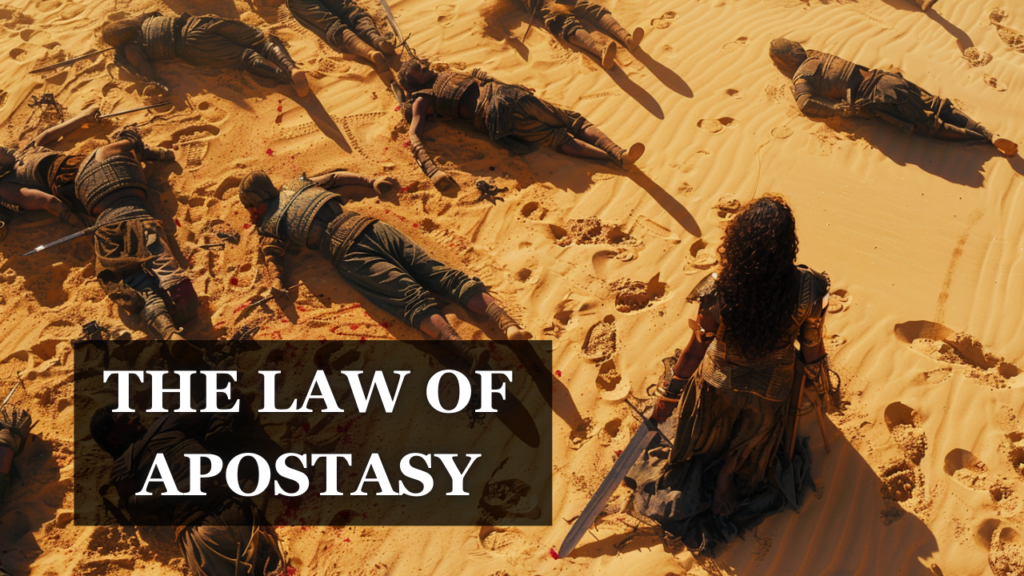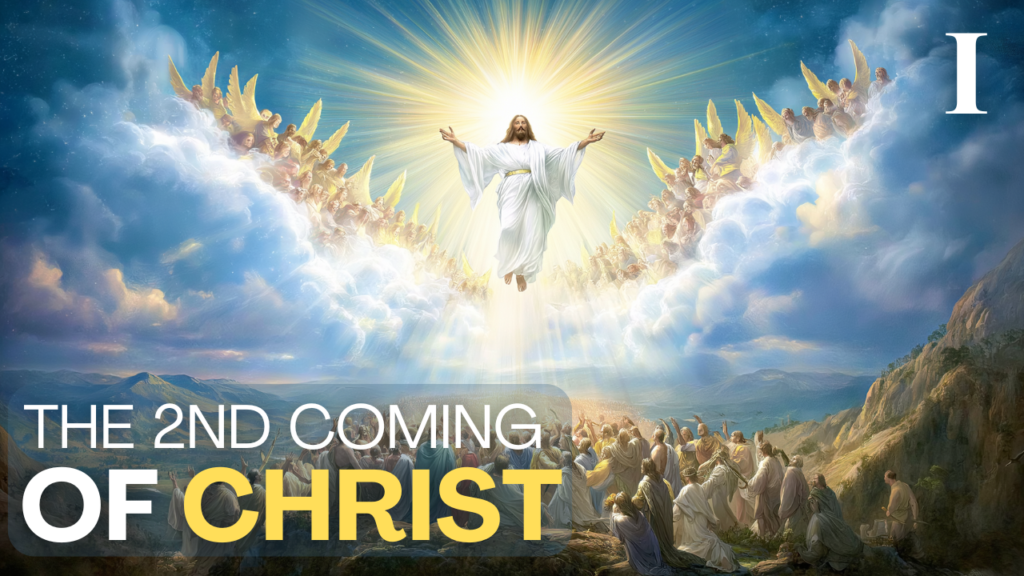“Wahi” is a concept found in Islamic theology and refers to divine revelation or inspiration from God. The term is used in the Quran several different ways throughout the text, and one way denotes how God communicates His divine guidance to prophets and messengers.
The Sunni position of the hadith corpus is that the hadith are considered ‘wahi’ from God granted to the prophet. They justify this using the verses in the Quran that state:
[53:1] As the stars fell away.
[53:2] Your friend (Muhammad) was not astray, nor was he deceived.
[53:3] Nor was he speaking out of a personal desire.
[53:4] It was divine inspiration (l-wahi).
[53:5] Dictated by the Most Powerful.
The argument posits that if all the Prophet’s utterances were divinely inspired (wahi), then by extension, the entire hadith corpus would carry divine authority. However, this position rests on a critical assumption: that all hadiths can be reliably traced back to the Prophet himself—an assumption that does not withstand scrutiny. The referenced video below presents compelling evidence challenging this fundamental premise by demonstrating several methodological and historical reasons why hadith cannot be conclusively attributed to the Prophet’s actual words or actions.
Even if we were to concede that the hadith corpus contains authentic prophetic statements, this overlooks a crucial admission by the muhadithoon (hadith scholars) themselves: that these narrations rarely preserve the Prophet’s exact wording. This acknowledgment poses significant theological complications for those who classify hadith as divine revelation (wahi), as it raises profound questions about how teachings that are admittedly paraphrased or reconstructed could simultaneously be considered the unadulterated word of God.
An Example From Surah Ikhlas (112)
Chapter 112, verse 1 states:
قُلْ هُوَ ٱللَّهُ أَحَدٌ
Proclaim, “He is God, the One.”
This is verbatim speech of God – this is clearly wahi (divine revelation)
قُلْ هُوَ اللَّهُ الْوَاحِدُ
Proclaim, “He is God, the Unique One”
This is not verbatim speech of God – it’s a phrase that encompasses the meaning of Phrase 1, but it cannot be called wahi despite conveying essentially the same theological concept. The distinction is critical. While both phrases communicate the oneness of God, only Phrase 1 represents the exact words revealed by God. Phrase 2, though similar in meaning and nearly identical in structure, lacks the divine authority of wahi precisely because it is not the verbatim revelation.
This parallels the hadith verbatim dilemma perfectly. Even accepting that hadith narrations preserve the Prophet’s general teachings, they cannot simultaneously be classified as wahi unless they preserve his exact words. The fact that hadith scholars acknowledge transmission occurred by meaning rather than verbatim wording undermines any claim that hadith constitutes divine revelation equivalent to the Quran. To claim otherwise would be to elevate human paraphrasing to the status of divine speech – a theological position that contradicts the fundamental Islamic understanding of wahi as the literal, unaltered word of God.
Evidence of Paraphrased Hadith


Translation: “One reason is that al-Bukhari compiled his book during the course of his long travels. It has been reported from him that he said: “I heard a hadith in Syria and wrote it down in Egypt, and I heard a hadith in Basra and wrote it down in Khorasan.” Because of this, he sometimes wrote a hadith from memory, not quoting the exact wording in full, but rather paraphrasing it and conveying its meaning.” [“An-Nukat ‘Ala Kitab Ibn as-Salah” by Ibn Hajar al-Asqalani, Volume 1, page 282]
For more evidence that the verbatim speech of hadith is not required and only paraphrasing was satisfied, check the following link and the citations: الرواية بالمعنى في الحديث الشريف
Examples From The Hadith
Analysis of Hadith Variants Regarding Women in Leadership – Video
I’ll document the differences between these hadith variants to demonstrate how the same event has been narrated with varying wordings despite allegedly tracing back to the same source:
Variant 1: Ahmad 20438 [Prophet – Abu Bakrah – Hasan alBasri – Humayd – Hammad b. Salamah – Aswad b. Amir]
- Context: A Persian man came to the Prophet saying “My lord has killed your lord” (referring to Kisra/Chosroes)
- Information provided: The Persian king’s daughter was appointed as successor
- The Prophet’s words: “لَا يُفْلِحُ قَوْمٌ تَمْلِكُهُمْ امْرَأَةٌ” (“A people will not succeed who are ruled by a woman”)
- Distinctive elements: Starts with the Persian man’s visit and statement
Variant 2: Hakim 7790 [Prophet – Abu Bakrah – Hasan alBasri – Humayd – Khalid b. Harith – Musaddad – Yahya b. Muhammad – Abu Abdulah Muhammad b. Yaqub]
- Context: The narrator mentions being saved by God through something he heard from the Prophet when news reached him about the king of Dhi Yazan dying
- Information provided: They appointed a woman to rule them
- The Prophet’s words: “لَنْ يُفْلِحَ قَوْمٌ تَمْلِكُهُمُ امْرَأَةٌ” (“A people will never succeed who are ruled by a woman”)
- Distinctive elements: References king of Dhi Yazan instead of Kisra/Chosroes; adds “never” (لَنْ instead of لَا)
Variant 3: Hakim 4608 [Prophet – Abu Bakrah – Hasan alBasri – Humayd – Khalid b. Harith – Muḥammad b. al-Muthanná – al-Haytham b. Khalaf al-Dūrī]
- Context: The narrator mentions being saved by God through something he heard from the Prophet when Kisra died
- Information provided: Shows a dialogue where the Prophet asks “Who did they appoint?” and is told “His daughter”
- The Prophet’s words: “لَنْ يُفْلِحَ قَوْمٌ وَلَّوْا أَمْرَهُمُ امْرَأَةً” (“A people will never succeed who have appointed a woman over their affairs”)
- Distinctive elements: Includes a dialogue format; changes verb from “تَمْلِكُهُمْ” (rules them) to “وَلَّوْا أَمْرَهُمُ” (appointed over their affairs); mentions narrator’s recollection when Aisha arrived
Variant 4: Nasai Kubra 5904 [Prophet – Abu Bakrah – Hasan alBasri – Humayd – Khalid b. Harith – Muḥammad b. al-Muthanná – al-Haytham b. Khalaf al-Dūrī]
- Context: The narrator mentions being saved by God through something he heard from the Prophet when Kisra died
- Information provided: Shows a dialogue where the Prophet asks “Who did they appoint?” and is told “His daughter”
- The Prophet’s words: “لَنْ يُفْلِحَ قَوْمٌ وَلَّوْا أَمْرَهُمُ امْرَأَةً” (“A people will never succeed who have appointed a woman over their affairs”)
- Distinctive elements: Very similar to Hakim 4608 but without the final comment about Aisha
Key Differences Identified
The analysis reveals significant variations across these hadith narrations despite their common origin and subject matter. The contextual framing differs substantially, with some versions describing a direct encounter with a Persian man, while others reference different royal deaths (Kisra versus king of Dhi Yazan). More importantly, the Prophet’s purported statement itself contains notable linguistic variations, alternating between “لَا” (will not) and “لَنْ” (will never), and using different verbal constructions to describe female leadership – “تَمْلِكُهُمْ” (rules them) versus “وَلَّوْا أَمْرَهُمُ” (appointed over their affairs). These textual discrepancies extend to narrative structure as well:
- Some versions present the information through dialogue, while others use direct statements
- The inclusion of personal reflections varies between narrations
- Several narrations contain unique elements absent in others (such as the reference to Aisha)
- The sequence and details of the event differ between versions
These variations, while subtle in some cases, demonstrate that hadith transmission prioritized preserving meaning over exact wording – a fundamental distinction from the verbatim preservation claimed for Quranic revelation.
Conclusion: The Verbatim Hadith Dilemma
The fundamental argument that hadith constitute divine revelation (wahi) based on Surah An-Najm (53:1-5) faces an insurmountable logical contradiction. If one contends that this Quranic passage establishes all prophetic speech as divine inspiration, then consistency demands that such inspired speech must be preserved verbatim to maintain its divine status. Yet, as demonstrated by our analysis of multiple hadith variants recounting the same event, the hadith corpus clearly does not preserve the Prophet’s exact words.
The muhadithoon themselves acknowledge that transmission occurred primarily by meaning rather than precise wording. This creates an irreconcilable dilemma: if divine revelation requires verbatim preservation (as with the Quran), then hadith that admittedly paraphrase or reconstruct the Prophet’s statements cannot simultaneously qualify as wahi.
Just as we agreed that Quranic content not quoted verbatim loses its status as divine revelation, the same principle must apply to hadith. The significant textual variations evident in these narrations—ranging from altered negation particles to entirely different verbal constructions—confirm that hadith preservation prioritized meaning over exact wording. This fundamental characteristic disqualifies the hadith corpus from the theological classification of wahi.

